The most common collection related penalties are:
- Late filing: up to 25% of the unpaid taxes of the return
- Late payment up: to 25% of the unpaid taxes
- Late federal tax deposits: up to 15% of late deposits
The most common accuracy related penalties are:
- Negligence penalty: up to 20% of the understated taxes
- Substantial understatement penalty: up to 20% of the understated taxes
PLEASE NOTE: There are also “toxic penalties” for business owners which can automatically double what you owe, such as a “Trust Fund Recovery Penalty” for failure to pay your employees withholding. This is a separate topic, and there are strategies to resolve these penalties as well.
The Good News Regarding IRS Penalties
However, the good news is, and what you may not be aware is, that the IRS also abates (cancels) some of those same penalties. Most of those penalty abatements occurred because taxpayers or their tax lawyers contested the penalties. It is important for those subject to IRS penalties to know U.S. Tax Code, IRS Penalty Handbook and Internal Revenue Manual to dispute a penalty assessed by the IRS. In considering non-assertion or abatement of penalties the IRS applies a standard of “Reasonable Cause”. Most people are unaware that the IRS will consider the following as reasons it might reduce a penalty:
- Death, Serious Illness, or Unavoidable Absence
- Fire, Casualty, Natural Disaster, or Other Disturbance
- Records Destroyed or Unobtainable
- Good faith Mistake
- Ignorance of the Law
- Statutory Exceptions or Waivers
- Undue Hardship
- Written Advice From IRS
- Oral Advice From IRS
- Advice from a Tax Advisor
- Disasters (“Acts of God”)
- IRS Error
- Personal Issues
Also, if you who have not had a previous delinquency the IRS generally may apply a First Time Abatement Rule upon request, but note that this is a criteria that continues to change, and where your Individual Master File must be obtained to determine if you qualify and how much of the penalty is subject to abatement or cancellation. Generally speaking, if you have not previously been required to file a return or if no prior penalties (except the Estimated Tax Penalty) have been assessed you may qualify. This First-Time Abate (FTA) is an Administrative Waiver.
Do You Qualify for Penalty Abatement?
You might be shocked to learn how many of my clients have wiped out huge chunks of their tax liability for reasons you probably would overlook. So you may be able to qualify as well. I won’t know unless we talk and review your situation. If you do think you may qualify, it’s critical you know the IRS Penalty Handbook, Internal Revenue Manual and relevant tax code sections. In fact, what’s interesting is that the IRS uses a sort of “artificial intelligence” to determine whether you qualify for tax penalty relief (abatement). If you know ahead of time what the IRS is looking for to determine penalty cancellation eligibility, then you stand a much greater chance to succeed. And potentially save a heck of a lot of money.
What If You Don’t Qualify for Penalty Abatement?
Keep in mind that if you don’t qualify for penalty abatement, you can attack the liability tax debt in other ways. You may be able to settle the penalty for a fraction of what is owed, or file bankruptcy, or file for hardship or enter into a partial pay plan. There are always solutions to tax problems!
Call Faith Firm Today!
Please call Michael Mack, day or night, at:
- 414-771-9200 (WI)
- 312-584-1440 (IL)
- 813-535-8080 (FL)
Over the years, Faith Firm has defended hundreds of individuals and companies before the IRS. Attorney Michael Mack has also written several books on taxes and the IRS. His latest book is “How To Get Tax Forgiveness”. Call today or visit us here for your complimentary copy of the book.

